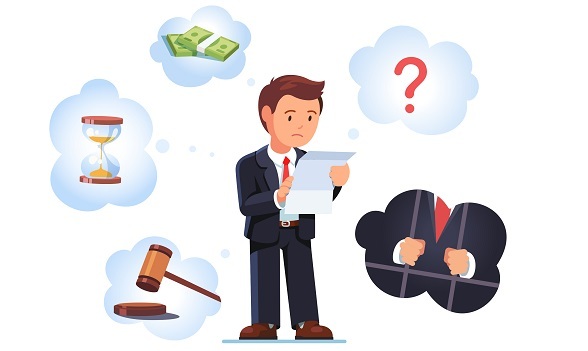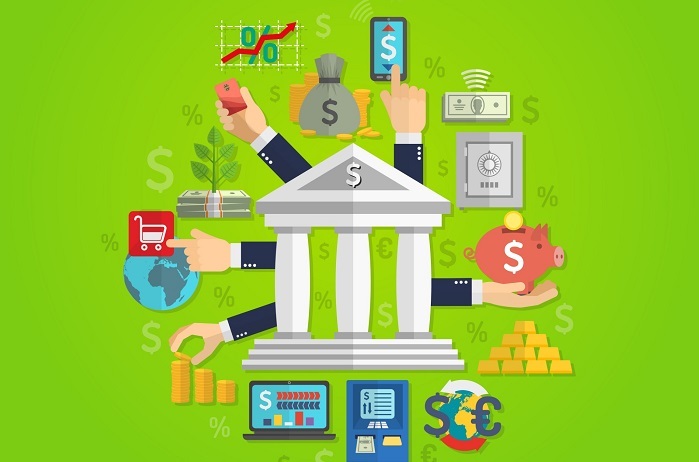
 Data Structure
Data Structure Networking
Networking RDBMS
RDBMS Operating System
Operating System Java
Java MS Excel
MS Excel iOS
iOS HTML
HTML CSS
CSS Android
Android Python
Python C Programming
C Programming C++
C++ C#
C# MongoDB
MongoDB MySQL
MySQL Javascript
Javascript PHP
PHP
- Selected Reading
- UPSC IAS Exams Notes
- Developer's Best Practices
- Questions and Answers
- Effective Resume Writing
- HR Interview Questions
- Computer Glossary
- Who is Who
Underbanked
Introduction
Underbanked individuals/households have minimum access to basic banking services like loans, credit cards, and savings accounts. This could be due to a lack of credit history, a poor salary, or living in places where banks or financial services are less or unavailable. Being underbanked can majorly affect a person/household's financial well- being. It will reduce their ability to save, invest, and grow wealth.
Meaning of Underbanked
Being underbanked involves having limited access to common banking institutions' financial services and their products. Some of the examples include checking and savings accounts, credit cards, and loans.
These financial products help people to achieve their financial goals. Underbanked individuals/households might need help getting credit. The only way of getting credit is by availing of expensive services like, payday loans or check-cashing
Underbanked Explained
The whole world is experiencing an increase in unbanked individuals/households in the past few years. Without a checking account, an underbanked person may have to pay bills with money orders or cash, which can be inconvenient and costly at times. Payday lenders and pawnshops are some of the common places where they can get a loan. These places charge high fees and interest rates. This cycle of relying on costly financial services can make it difficult for them to save money, build credit, or achieve financial stability.
Which Class of People Are Underbanked?
Underbanked individuals come from various demographic origins but usually have significant characteristics. Underbanked individuals may be low-income earners, recent immigrants, or those with insufficient schooling.

Some people who reside in rural or isolated areas may be underbanked as they lack common banking services. People with a low or no credit history may also be underbanked, as they may require assistance getting credit or loans from traditional financial institutions.
Is Underbanked and Unbanked the Same?
The terms underbanked and unbanked are frequently used together; however, they refer to different things. Unbanked individuals have no access to normal banking services, whereas those underbanked have limited access. Unbanked individuals only have the option to use prepaid debit cards or money orders to handle money.
Underbanked individuals have access to some traditional banking services, which are minimal. They also need to rely on alternative financial services to meet their needs.
What are the reasons for being underbanked?
Underbanked people have minimal access to some of the basic banking services. Some reasons for this phenomenon are-
Low income Some people do not earn much, so they cannot meet the minimum balance requirement for starting an account. Low income also decreases their chance of getting any loans or credit cards.
Limited credit history Individuals with limited credit history may need help to obtain loans or credit cards from traditional financial institutions.
Geographic location People living in rural or remote areas cannot access basic banking services. In these areas, there are no bank branches or ATMs; therefore, life for them is difficult.
Lack of financial education People with limited financial education may need help understanding the benefits of traditional banking services or may be unaware of their options.
What are the reasons for being unbanked?
Unbanked people have no access to any basic banking services. Some reasons for the lack of it are-
Lack of trust Many people cannot trust banking institutions due to traditional thoughts. Some of them may have had negative experiences with these institutions.
High fees Most financial institutions require a minimum balance or high fees. Most low-income earners are not able to match the requirement.
Legal status For some banks, you need to have high minimum balance to open an account or access their financial services.
Limited financial education People with limited financial education may need help understanding the benefits of traditional banking services or aid them in learning basic financial operations like opening a bank account, writing deposit and withdrawal forms, how to deposit checks, etc.
Ways to aid the unbanked and underbanked

Some strategies for helping unbanked or underbanked individuals and households consist of the following
Financial education programs These programs can assist individuals in understanding the benefits of traditional banking services and how to efficiently manage their money.
Mobile banking and digital wallets Mobile banking and digital wallet services can help individuals access financial services without visiting a physical bank branch.
Government programs Participate in the government events to aid in understanding the financial products and services and banking operations.
Examples of Underbanked
Some examples of underbanked individuals include
People who ignore the common banking services but continue to use payday loans or check-cashing options.
People who do not have a savings account or have minimum access to credit cards or loans.
Immigrants who are new to the country need an established credit history.
Low-income individuals may not qualify for traditional banking services due to their limited income.
Conclusion
People who are underbanked/unbanked have to face many problems as they have minimal access to some of the key banking services. Community development, financial institutions, financial education programs, mobile banking, digital wallets, and government programs can assist individuals in gaining access to the financial services they require to succeed.
FAQs
Q1. Who is considered underbanked?
Ans. A person is said to be underbanked if they have a low income or limited credit history. People living in remote or rural areas are said to be underbanked as they have no access to basic banking services.
Q2. Is being underbanked the same as being unbanked?
Ans. No, being underbanked is different from being unbanked. Unbanked individuals have no access to basic banking services, while underbanked people have minimum access.
Q3. Are there any consequences for being underbanked?
Ans. If a person is underbanked, they will have minimal access to credits, loans, etc. It can also result in higher fees and interest rates for alternative financial services.
Q5. What initiatives can help underbanked individuals?
Ans. Initiatives such as community development, financial institutions, financial education programs, mobile banking and digital wallets, and government programs can help underbanked individuals access traditional banking services.

